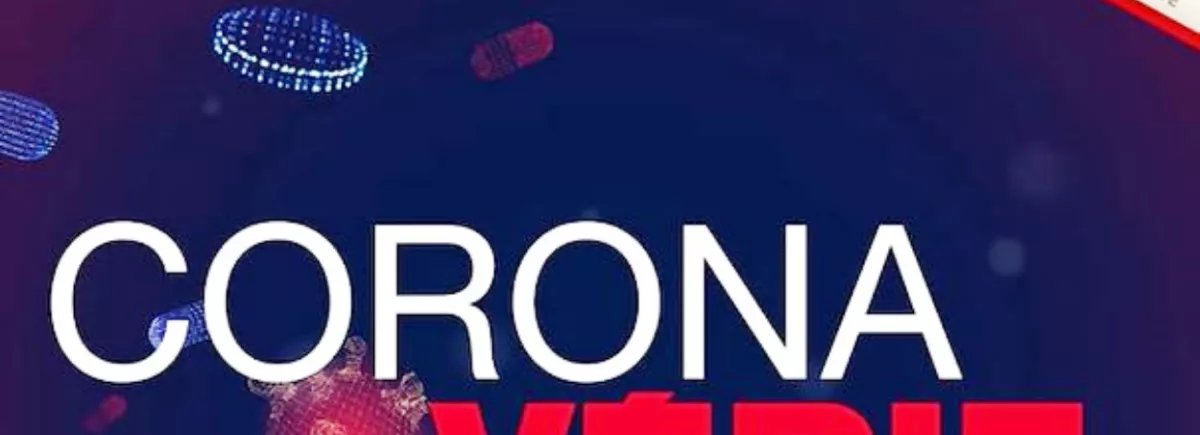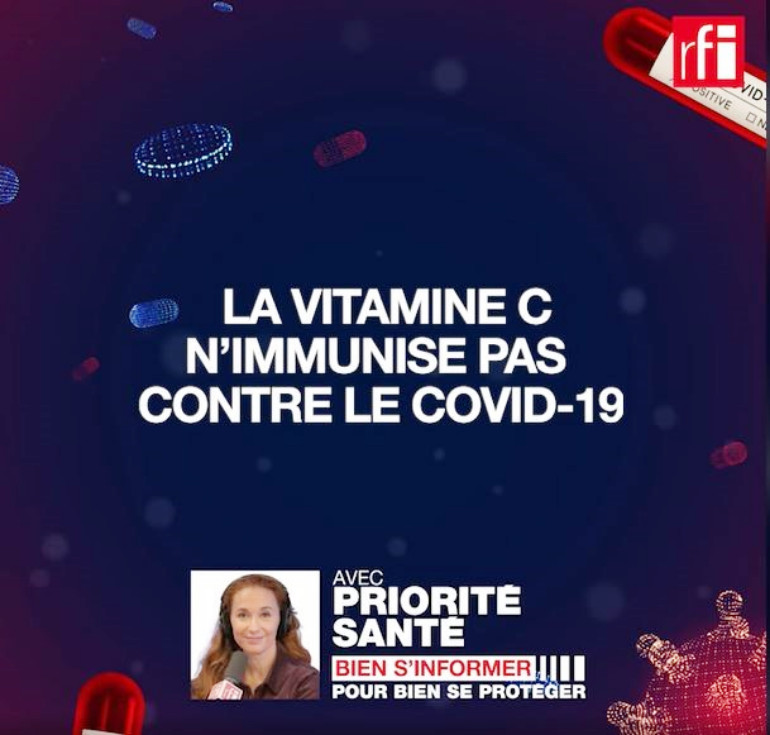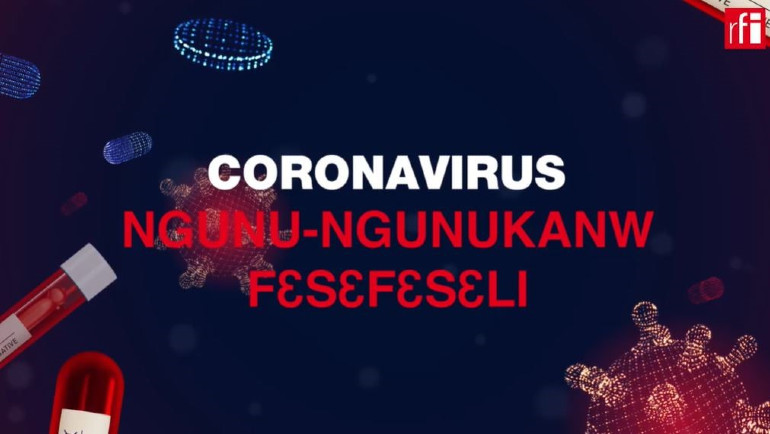
Video news podcasts: RFI CoronaVérif fact-checkers to combat misinformation
Related project
MediaSahel Covid-19The team from Priorité Santé, RFI’s flagship health programme, has devised and broadcast a series of subtitled educational video podcasts in French and 3 African languages (Fulfulde, Mandenkan and Hausa), with each video covering a single story, to combat misinformation and fake news about the spread of coronavirus. Take a closer look at this public information initiative.
Aimed at combating the most viral misinformation about COVID-19 circulating in the Sahel, the CoronaVérif [Corona Fact-checker] video podcasts were devised by the Priorité Santé team (RFI) in partnership with CFI as part of MediaSahel’s response to the pandemic. Topics are chosen based on the most viral misinformation on the internet. They are dealt with by the programme presenter, Caroline Paré, and an African health professional in short 2-3 minute videos.
Each video has the same general format: Caroline Paré introduces the subject and then puts a question to the scientist, who answers it by deconstructing the false information in a clear, concise way to give the overall picture, illustrated through motion graphics.

In total, 20 video podcasts have been produced in the four languages and posted on social media, with each video seeking to deconstruct a specific news item or piece of information. The topics chosen resulted in the deconstruction of fake news stories claiming, for example, that the virus was concocted by a secret laboratory or that skin colour is a natural protective barrier. They also warned people of the potential danger of relying on traditional medicine and reminded them of the right behaviour to adopt to protect themselves and others. The detailed answers provided the programme’s listeners with clear, accurate, science-based information on questions that had until then been sparking debate.

For Aïssatou Ly, the presenter of the Fulfulde version of the videos, the CoronaVérif podcasts addressed an urgent need for reliable, verified information. Posting them online in different languages helped to reach every segment of the population and made listeners feel that what has been happening in the world concerns them too. The great enthusiasm for CoronaVérif can be measured notably by the high levels of traffic recorded on social media: “Since we started broadcasting the CoronaVérif feature on the RFI Fulfulde Facebook page, we’ve noted an increase in visitors to the page. In the space of a month, we received thousands of ‘likes’. One video was even viewed over 20,000 times, which is phenomenal. Since these podcasts started, the number of internet users visiting the page has increased tenfold. There is a greater sense of enthusiasm with every video that is posted, as seen in the comments and reactions.” Aïssatou Ly, RFI Fulfulde
Many have in fact expressed their thanks and encouragement in comments posted online: “On njaarama e gollemo mon moƴƴe. Aysatou ly ñeebbe ñawu wayikono maydenih basɗo e dañɗo ganndo e majjuuɗo fof ko maayoɓe ɗuum noon yoo allah faabo” (Thank you for this work. Death spares no-one, rich and poor alike, whether highly educated or uneducated. May the Lord protect us) and “On... beltanaama badam rewbe de baddon hiirjinde yimbe be ko huude wadde faayide nofeewi. On beltanaama yo Allah wallu bnne courage e bnne continuation.” (Thank you for this campaign to raise awareness. It’s really interesting. All the best and keep up the good work.)
Thanks for this initiative that will save so many lives! The same enthusiasm was noticeable for Caroline Paré’s French version. The videos triggered many online comments and generated real interest among internet users, with traffic often peaking at over 170,000 views and comments such as “I applaud this initiative as there is too much misinformation about this disease”, and “In the public arena these days, you hear all kinds of supposed facts, particularly on social media, where everyone's an expert. Every day, in fact, there's all this misinformation that has to be corrected and refuted as it is toxic to users. Thank you for enlightening us, professor.”
It also provided a forum for free expression, where internet users could put questions to the Priorité Santé teams after watching the videos:
“I agree with the team. Priorité Santé - RFI, can you tell us how many stages there are in manufacturing a drug? What are they? How long should it take? Thank you very much.” The Coronavérif podcasts are still available on the website and RFI - Priorité Santé Facebook page and on the Fulfulde and Mandenkan editorial teams’ pages.
MediaSahel COVID-19 supports the production and broadcasting of reliable, quality content on the coronavirus, by adapting media content already produced through the MediaSahel project and by offering new information and content to increase awareness. The organisation benefits from additional funding from the French Development Agency (AFD), as part of the French “COVID-19 – Health in Common”, initiative.


